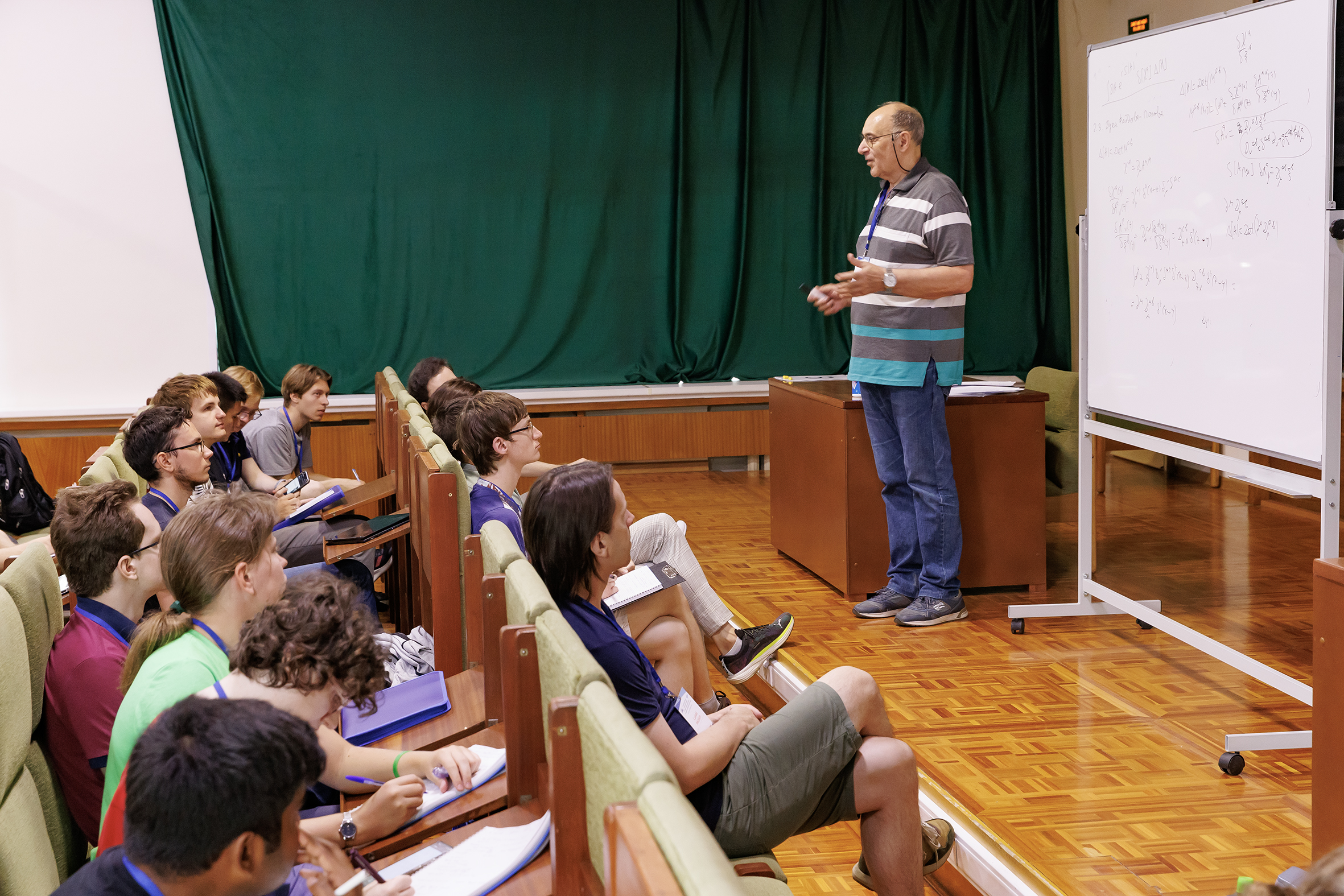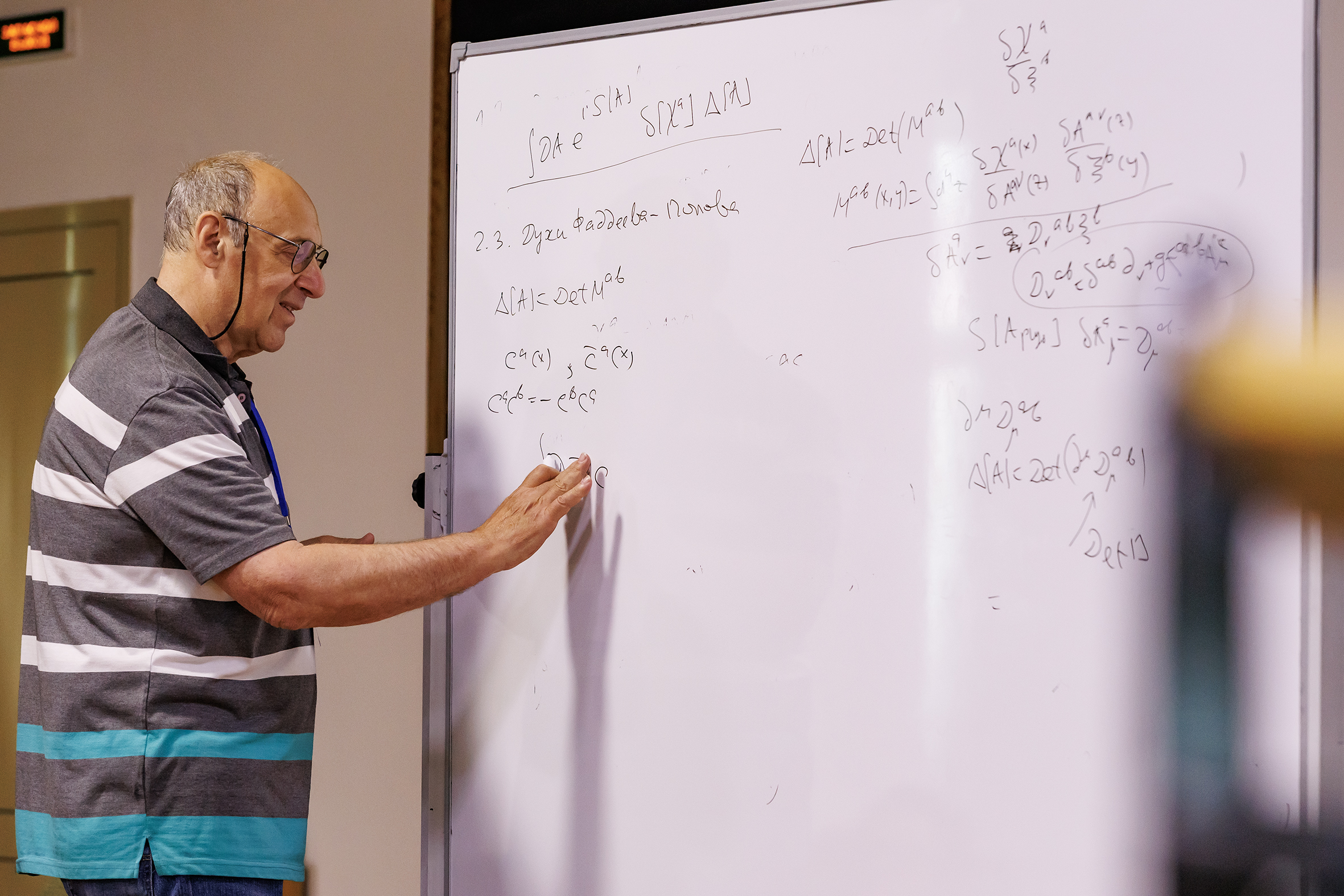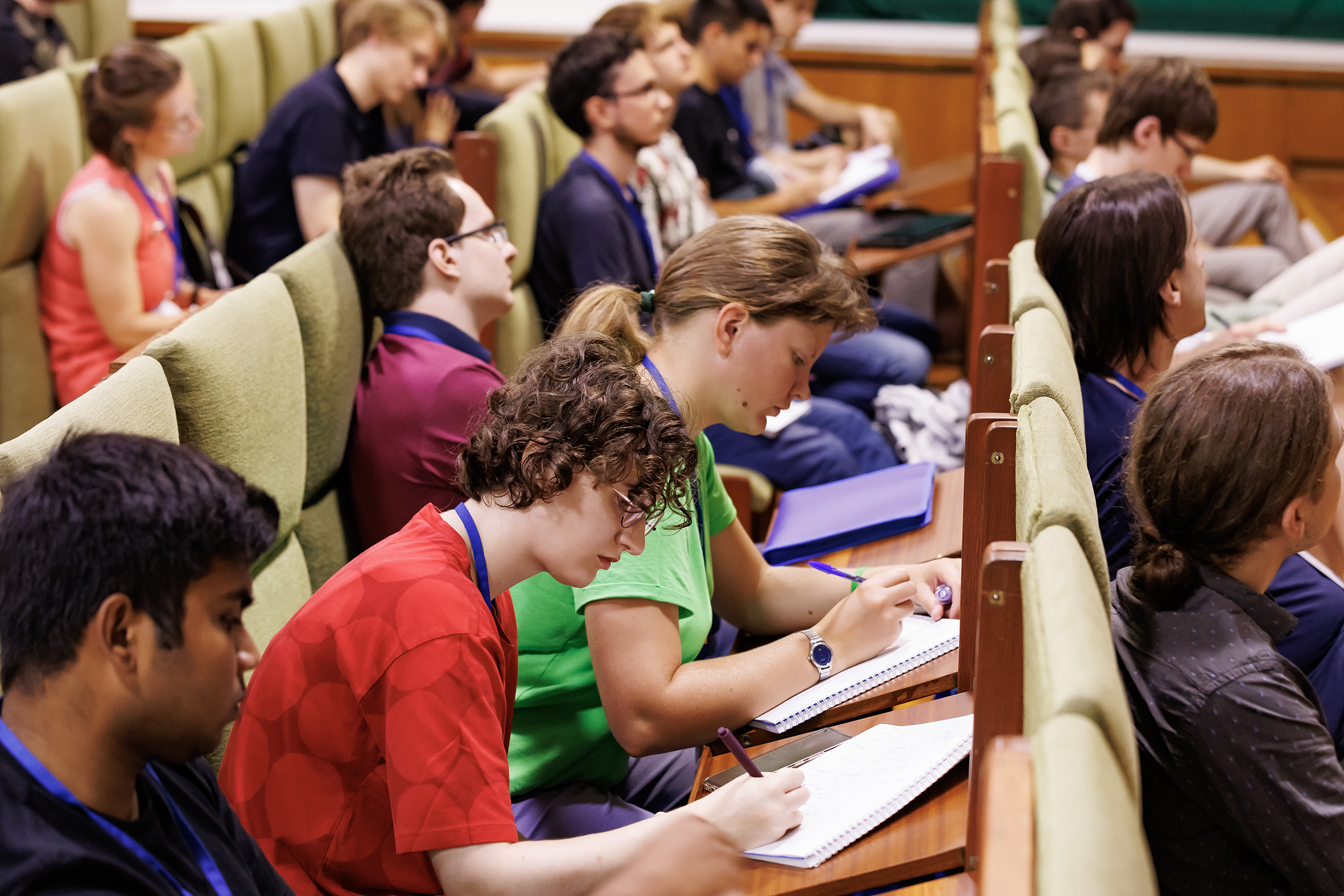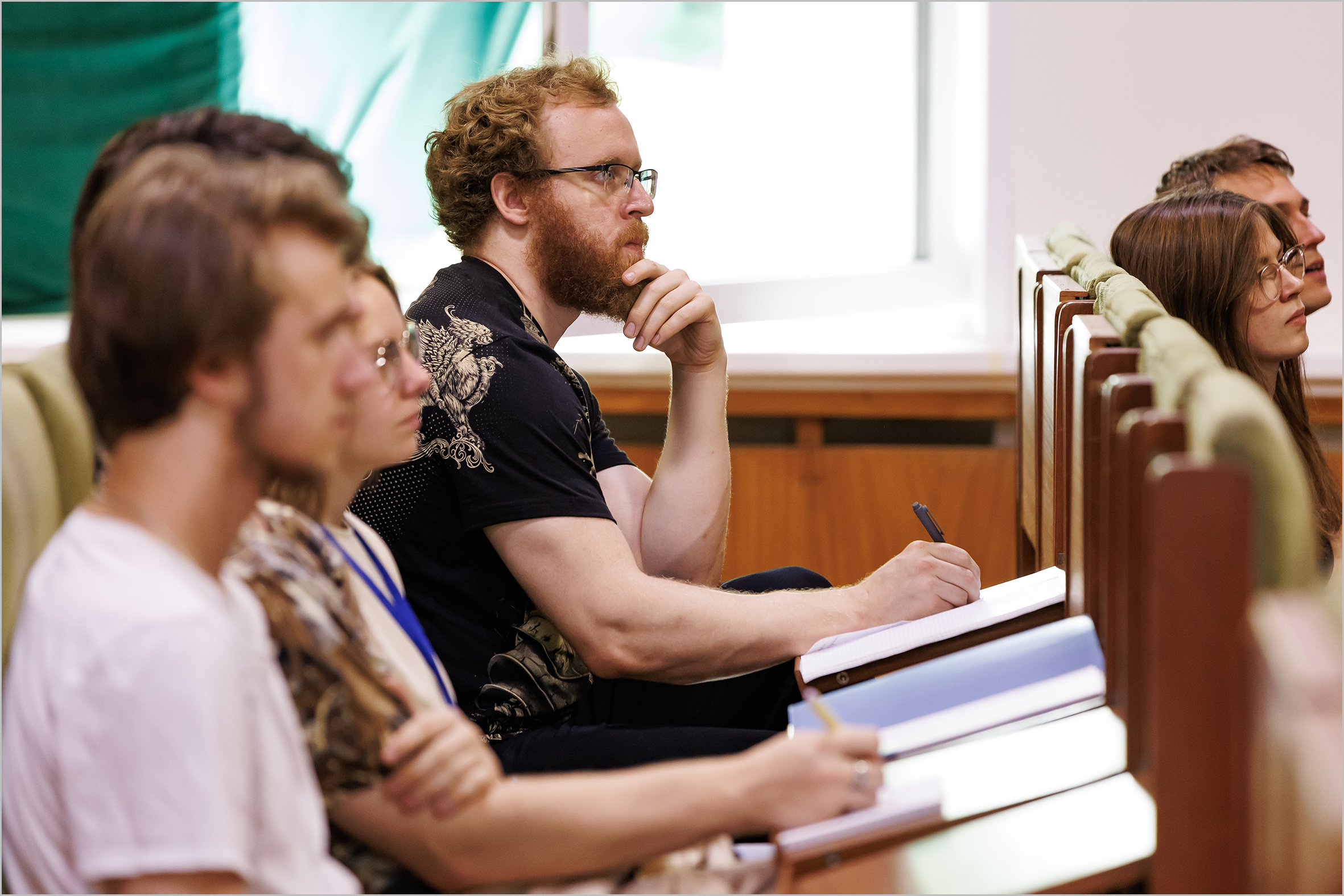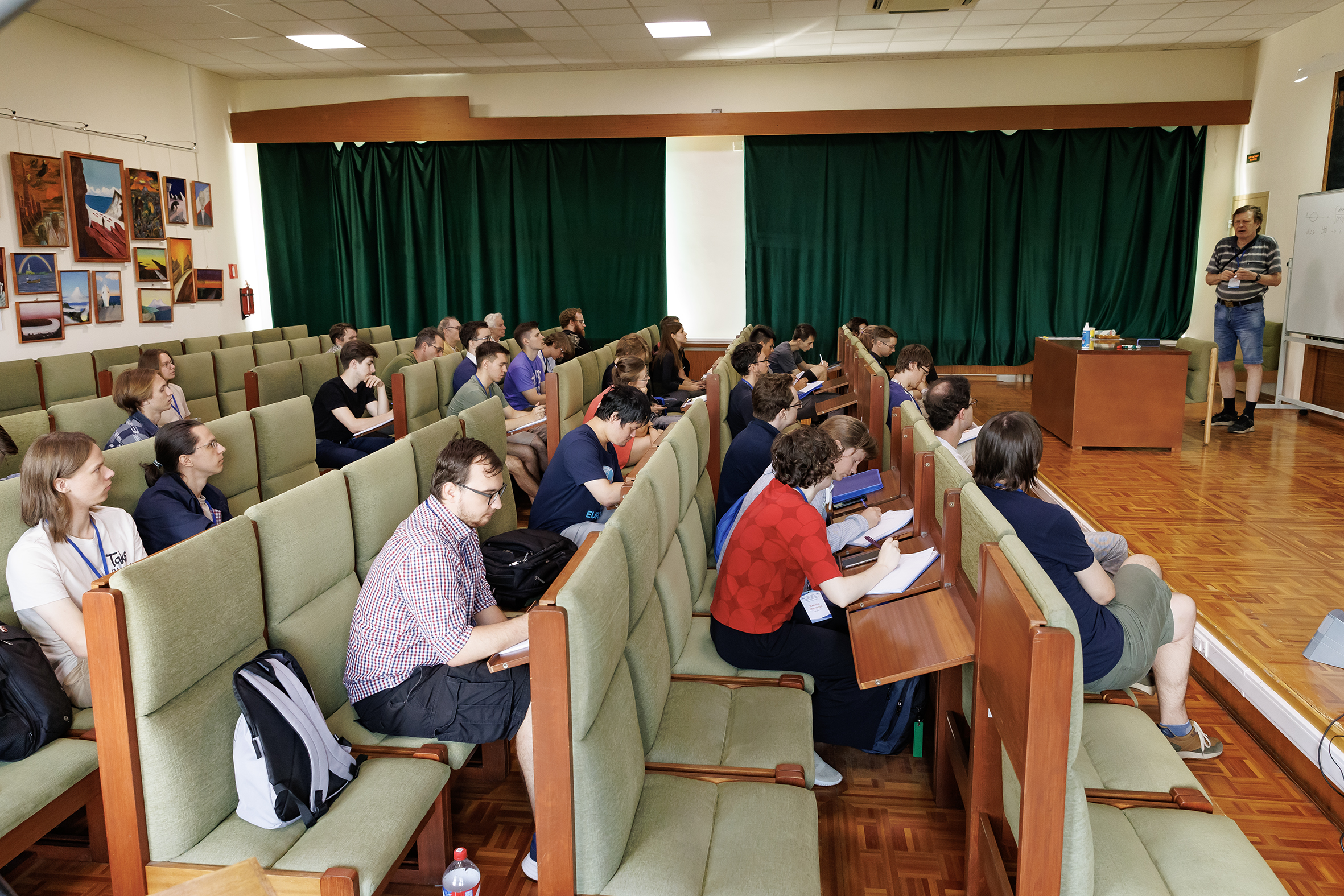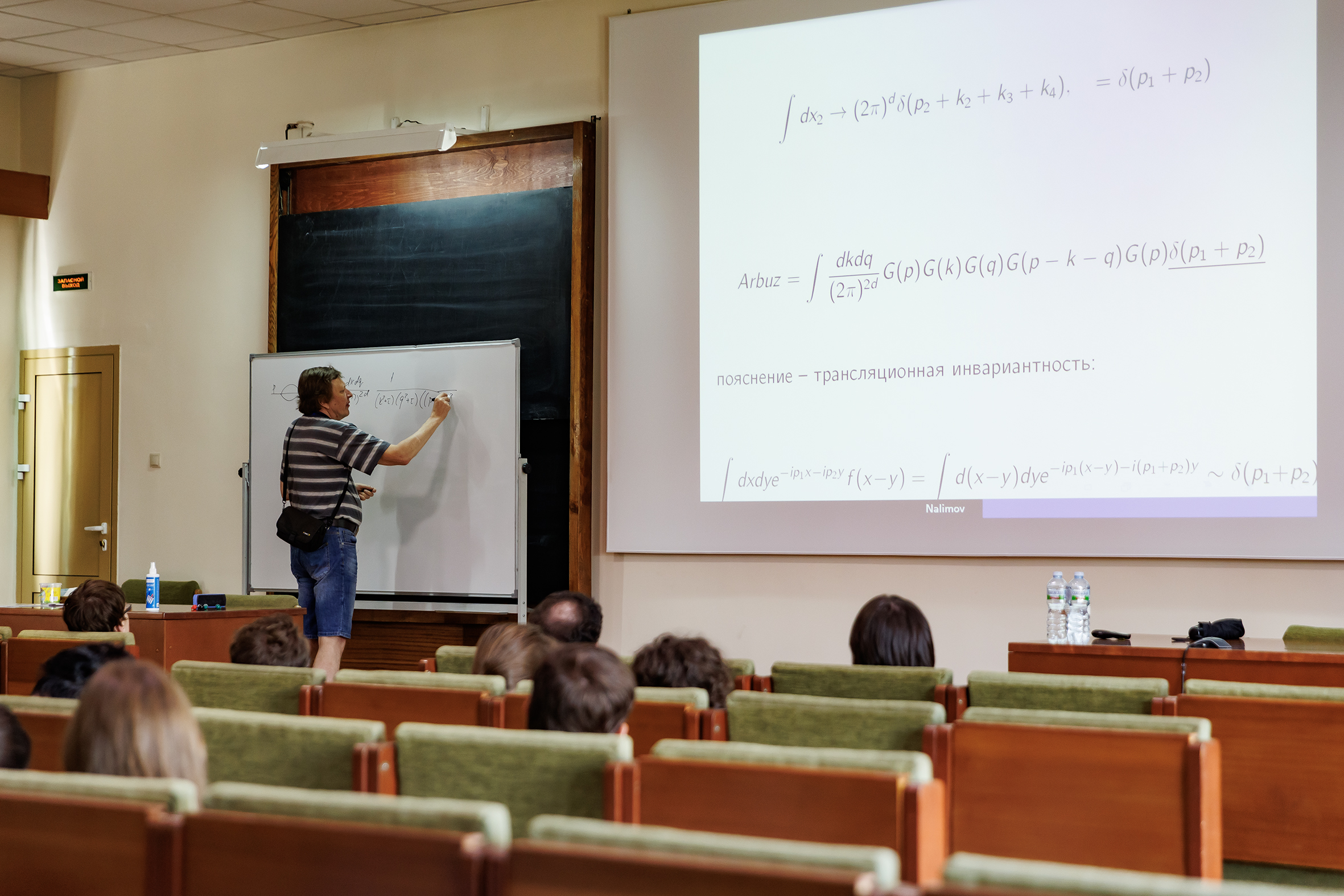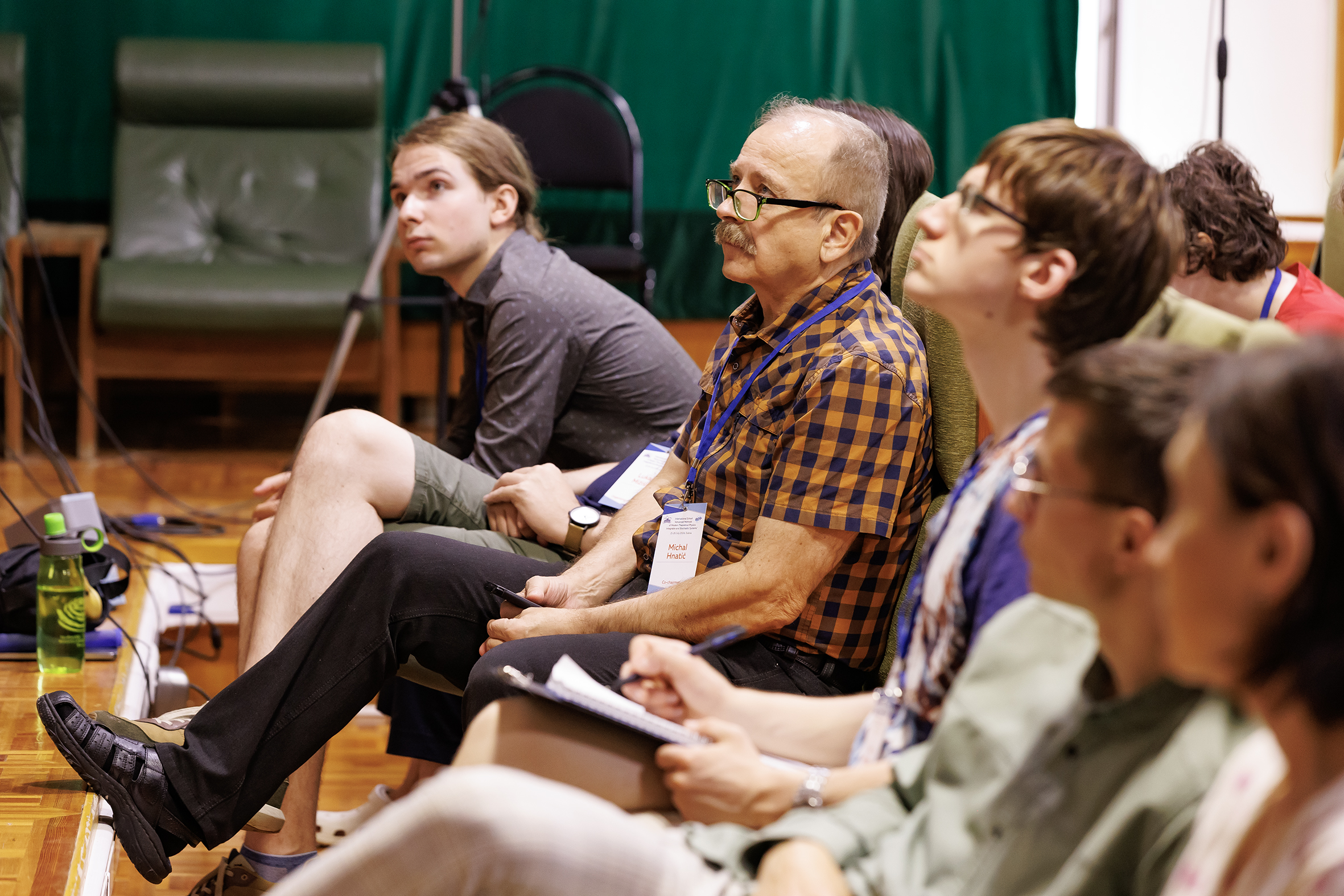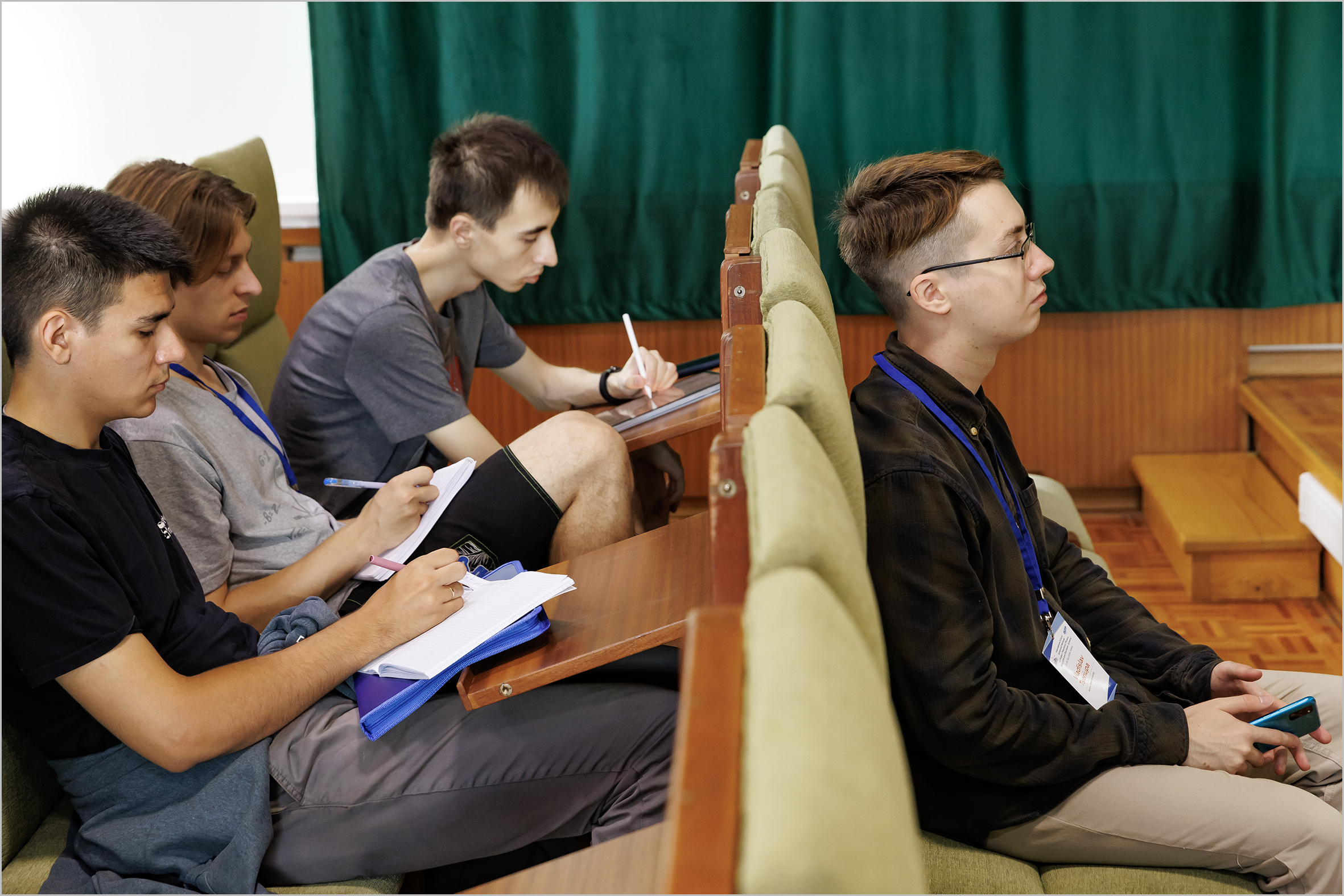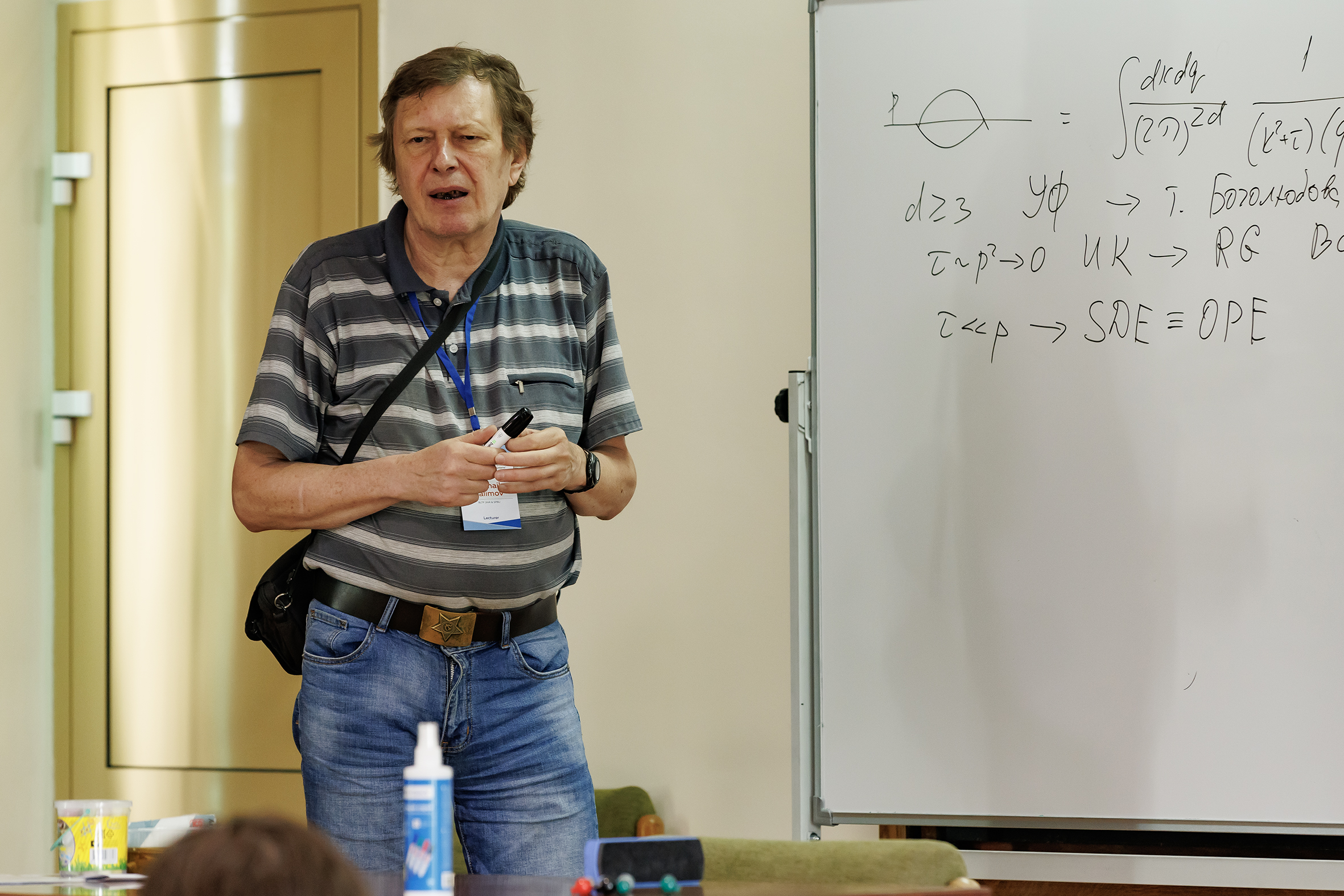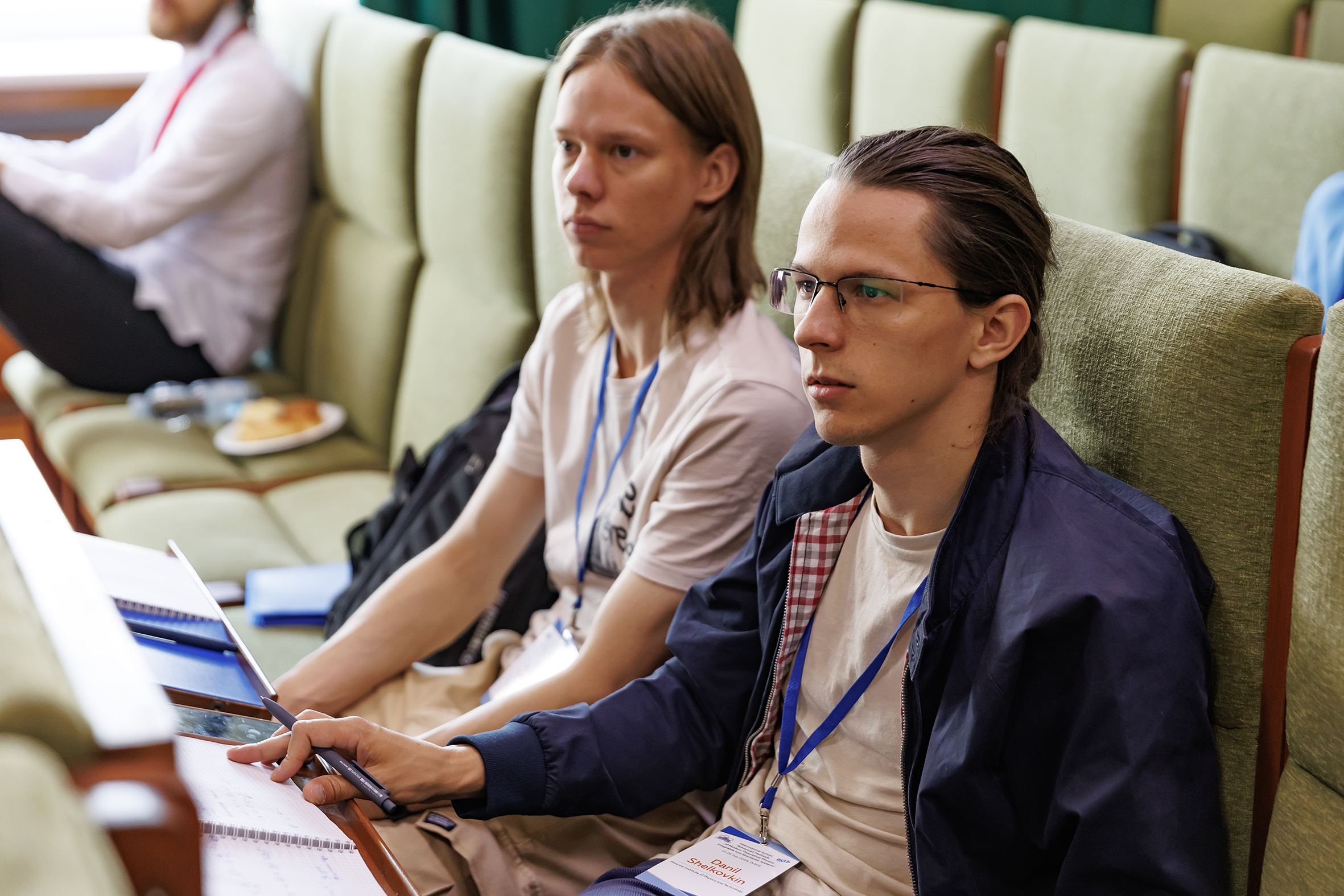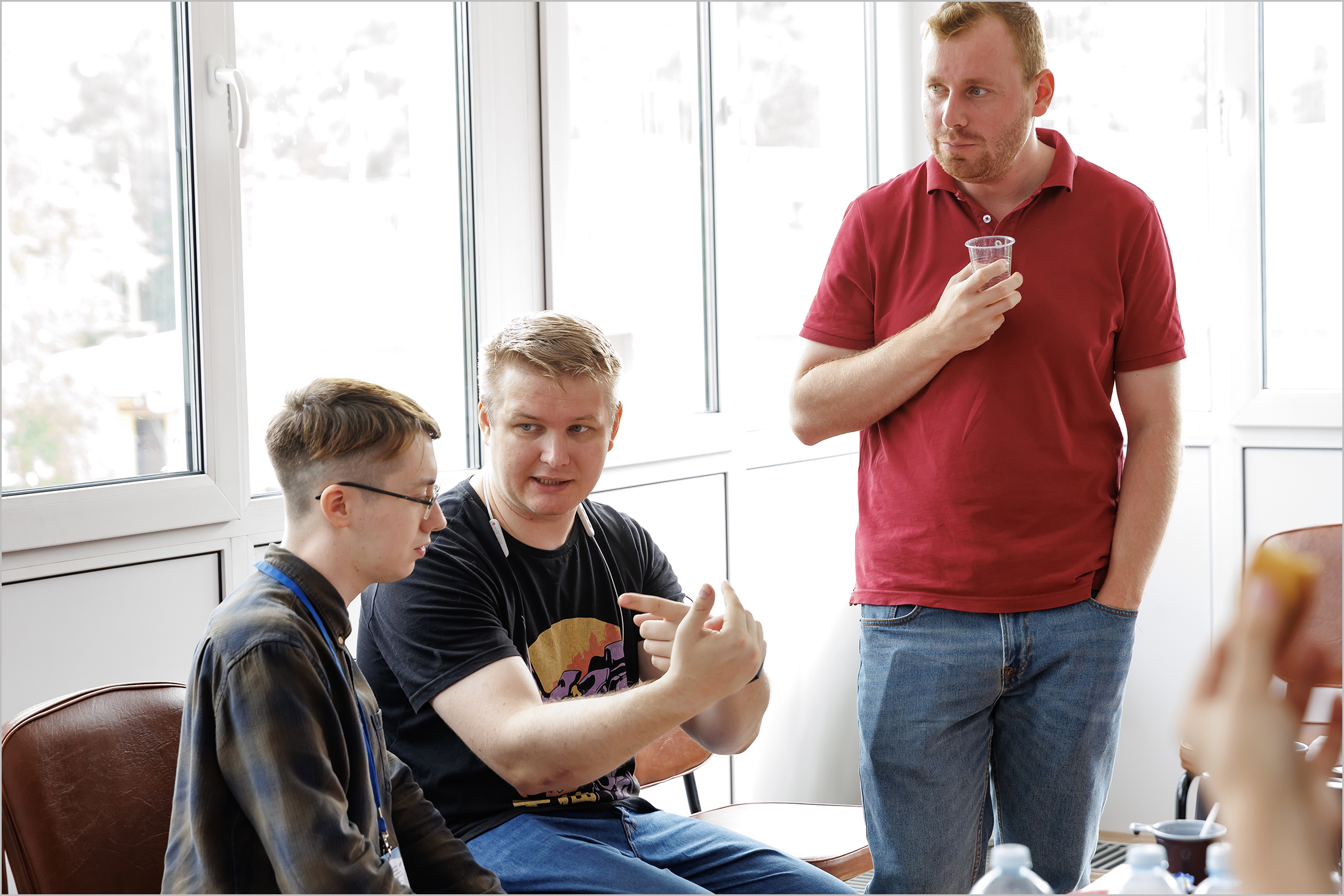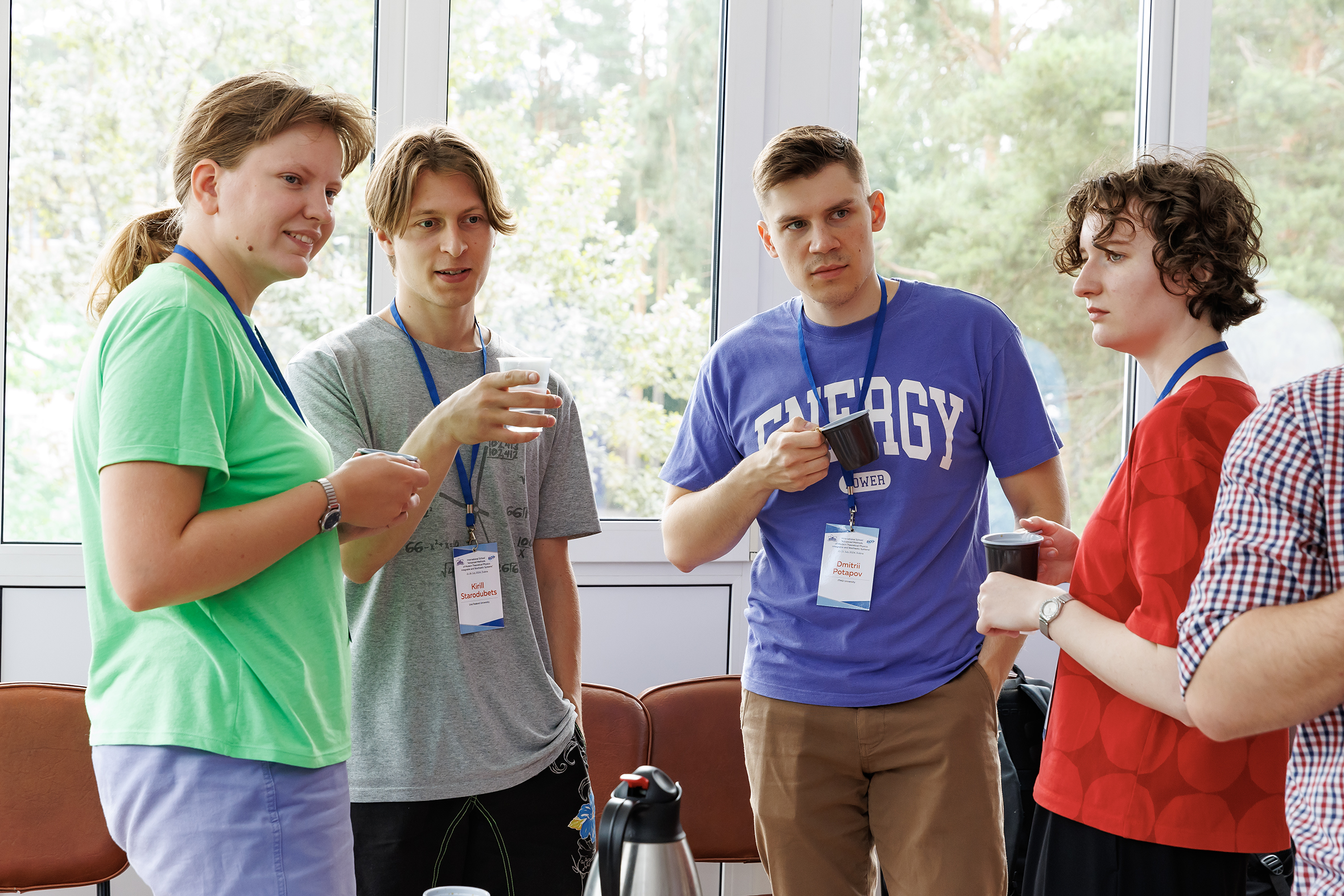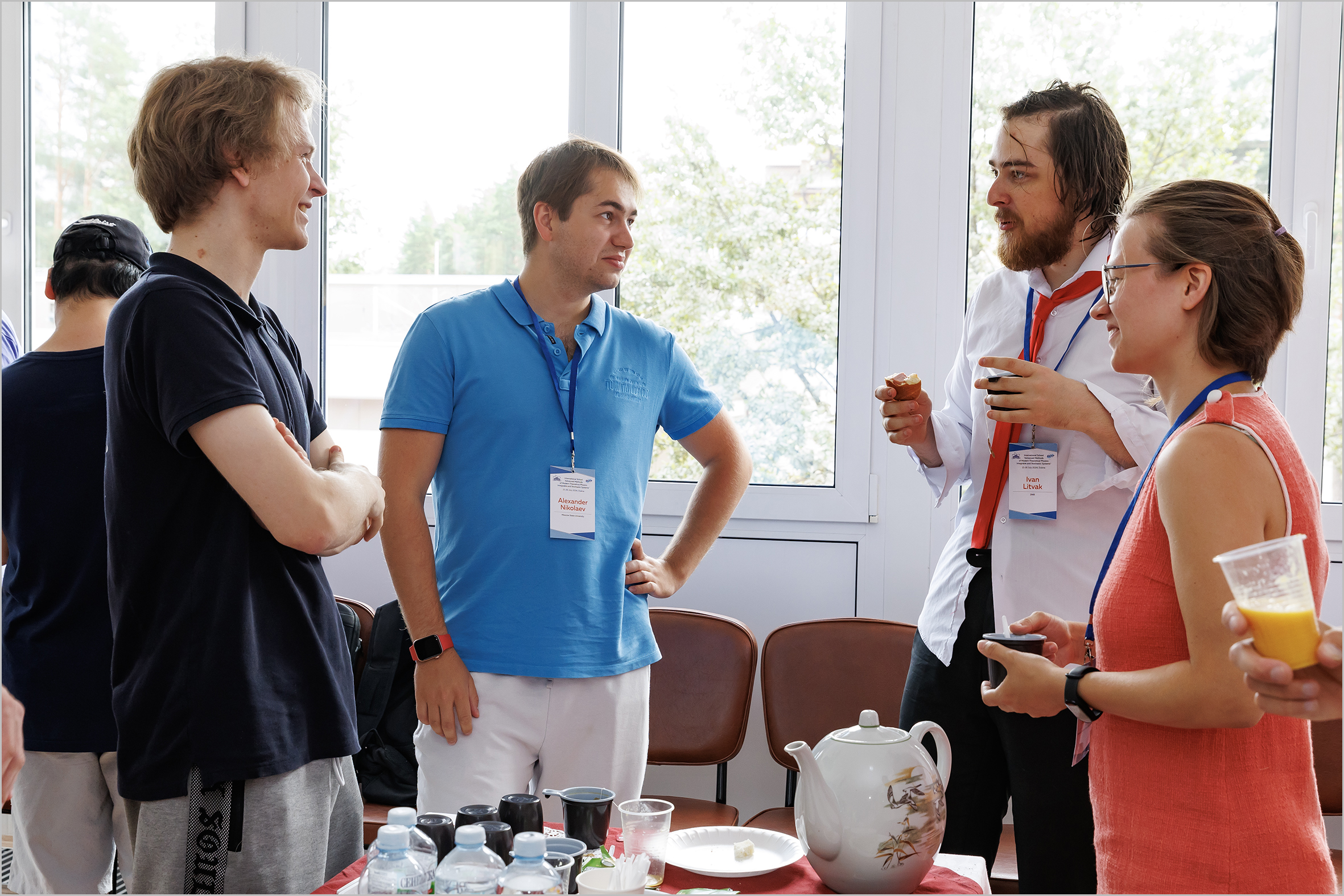School on modern methods of theoretical physics starts at JINR
Education, 23 July 2024
On 21 July, an international school titled “Advanced Methods of Modern Theoretical Physics: Integrable and Stochastic Systems” started at the Blokhintsev Lecture Hall at the Laboratory of Theoretical Physics at JINR. 66 master’s and graduate students from universities of Bulgaria, Italy, Russia, and Slovakia and employees of research centres are participating in the event. During the week-long event, they will hear lectures by eminent theoretical physicists on methods of quantum field theory, nonequilibrium quantum and classical systems and stochastic methods, integrable systems, and gravitational waves.
This year, the participants are students and postgraduates of Moscow State University, Moscow Institute of Physics and Technology, Saint Petersburg State University (SPbSU), Peoples’ Friendship University of Russia, Saratov State University, Saint Kliment Ohridski Sofia University (Bulgaria), Tomsk Polytechnic University, Bauman Moscow State Technical University, Dubna University, ITMO University, Pavol Jozef Šafárik University (Slovakia), Kazan, Ural, and Southern Federal Universities, and University of Chemical Technology of Russia. Young scientists from research centres of Kurchatov Institute, Russian Federal Nuclear Centre, Lebedev Physical Institute of the Russian Academy of Sciences (RAS), RAS Ioffe Institute, and BLTP and FLNR at JINR are taking part in the conference as well.
The most motivated and active applicants are selected to participate in the school. A third of them will make poster presentations on 24 July during a section of the school held on the Lipnya Island. Some of the students already know the organizers personally as their scientific supervisors.
At the opening of the school on 21 July, Organizing Committee Co-Chair Michal Hnatič read out an introductory speech of the Laboratory’s Deputy Director for Scientific Work Eugen Anitas.
“Speakers define the schools we hold. Each professor participates in two or three schools in the school for two or three years, contributing providing their perspective and presenting the material, which combines both fundamental paradigms and the latest scientific achievements, in their own way,” Michal Hnatič noted. The scientist added that the lecturers of the school specialise in quantum field theory, high energy physics, condensed matter theory, phase transitions, open system theory, percolation, turbulence, and self-organized criticality. This year’s lecturers are eight professors of theoretical physics, seven of them work at JINR: Anton Baushev (BLTP), Ioseph Buchbinder (BLTP), Nikolay Gulitskiy (SPbSU, BLTP), Alexey Isaev (BLTP), Mikhail Nalimov (SPbSU, BLTP), Alexander Povolotsky (BLTP, Higher School of Economics), Dmitry Fursaev (BLTP), Sergey Derkachev (St. Petersburg Department of the RAS Steklov Mathematical Institute).
The school’s Scientific Secretary Georgii Kalagov pointed out that this year’s event apart washighlight is the increased number of lectures given by each speaker, with the material being presented in mini-courses.
“The School on Integrable and Stochastic Systems is an annual, now flagship BLTP school that has entered a new stage of development. The organizing team of the event works with great enthusiasm,” Co-Chair of the school’s Organizing Committee Irina Pirozhenko commented.
The event will last until 26 July. The working languages are English and Russian.
